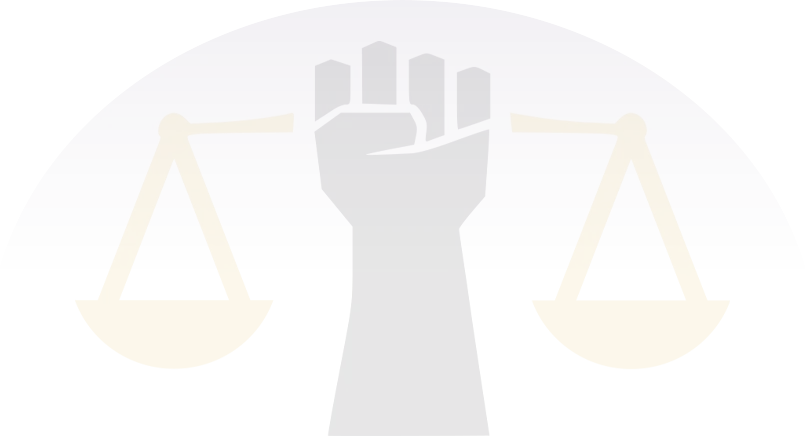
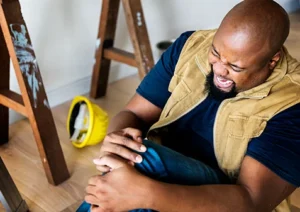 Accidents happen when you least expect them, and the consequences can be catastrophic. Whether it’s a car crash, slip and fall, or a construction injury, a personal injury accident can be overwhelming.
Accidents happen when you least expect them, and the consequences can be catastrophic. Whether it’s a car crash, slip and fall, or a construction injury, a personal injury accident can be overwhelming.
If you find yourself struggling with medical bills, lost wages, and pain and suffering, it’s time to contact an experienced Atlanta personal injury lawyer. They can advocate for your rights and help you rebuild your life by fighting for maximum compensation.
At T. Madden & Associates, we are proud to represent the values of excellence, authenticity, and a deep commitment to the Atlanta community. Led by Attorney Terance Madden, our team uses our combined decades of experience in personal injury law to help achieve justice for our clients.
As a Black-owned firm, we are committed to empowering our community through legal advocacy and outreach.
If you are ready to get started with a free consultation, give us a call at 706-807-1998.
Proven Track Record of Success
With years of experience advocating for injured individuals, Attorney Terance Madden and his team at T. Madden & Associates have recovered millions of dollars in settlements and verdicts for clients throughout Atlanta. Whether you’re dealing with a car accident, slip-and-fall, or other personal injury, our accident attorneys understand the challenges you face and work tirelessly to achieve the best possible outcome for your case.
Personalized Attention
At T. Madden & Associates, we treat every case as unique. Attorney Madden and our skilled injury lawyers take the time to understand your situation, answer your questions, and develop a legal strategy tailored to your needs. When you work with us, you’re not just another case number — you’re part of our family.
No Fees Unless We Win
We believe everyone deserves access to justice, regardless of their financial situation. That’s why we operate on a contingency fee basis — you don’t pay us unless we recover compensation for you. This allows you to focus on healing while we handle the legal complexities of your case.
Comprehensive Legal Knowledge
Our Atlanta accident attorneys stay up-to-date with the latest developments in personal injury law, ensuring you receive the most effective representation possible. We leverage our extensive legal knowledge and resources to craft compelling cases that stand up to tough opposition.
Strong Community Ties
As proud members of the Atlanta community, Attorney Terance Madden and our team are dedicated to making a difference both in and out of the courtroom. We value our role as advocates for justice and work tirelessly to improve the lives of our clients and neighbors alike.
If you need experienced Atlanta personal injury lawyers who will fight for your rights and provide compassionate support, choose T. Madden & Associates.
Madden & Associates is proud to serve clients throughout these areas and beyond. If you’ve been injured in Atlanta or the surrounding communities, contact our experienced Atlanta injury attorneys for personalized legal support.
Atlanta personal injury attorneys handle a wide range of cases involving injuries and damages caused by the negligence or intentional actions of others. Some common types of cases to seek legal help include:
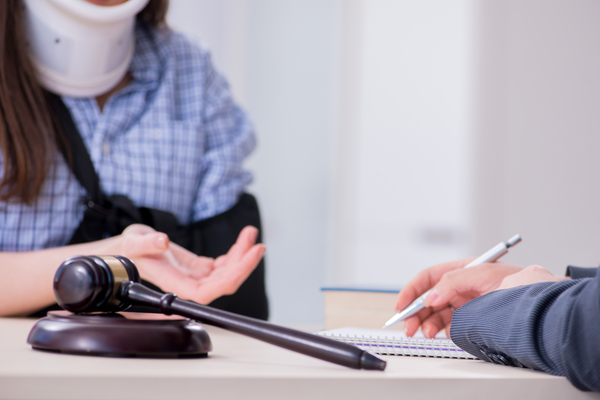 dous conditions, such as wet floors or uneven surfaces.
dous conditions, such as wet floors or uneven surfaces.The key focus of a capable and driven personal injury law firm is to help injured individuals or their families seek compensation for their losses. If you’re unsure whether your situation qualifies as a personal injury, consult with legal professionals.
Here are a few key points to understand about the statute of limitations for personal injury lawsuits in Georgia:
If you’re considering filing a personal injury lawsuit in Georgia, you should consult with an attorney as soon as possible. Your personal injury lawyer can assess the specifics of your case, determine the applicable statute of limitations, and guide you through the legal process.
Very nice people who are there only to help you. He get u back your max amount for your settlement. The process is very fast. I give 5 stars.
Thank you!! Attorney T Madden and staff were wonderful!!
Great service. Took the time to explain every process to me. Felt very comfortable to contact them for any questions I had. I would recommend!
Very professional. Tiffany did a great job updating me on my son’s case. Would definitely recommend to anyone. They took great care of us.
They have been fantastic. No matter how busy they are they have time for you. Renee is very friendly and caring. Keeps you up to date with your case, good or bad. I never have to call them and if I do call the phone is always answered. If not they call you back ASAP. I recommend them to everyone.
I was represented by T. Madden and Nicholas Schnyder on my car accident case. They and their staff were very professional, willing to answer any and all of my concerns. If they were not available, I would receive a call back within a timely manner. I am very satisfied with how my case came out and I would highly recommend their services.
The warmth, dedication and empathy shown in my daughters case, put me at ease knowing I had placed her in good hands. Due to the professionalism and thoroughness shown by the staff, I would definitely recommend Attorney Madden to family and friends. My daughter was extremely pleased with her settlement.
This firm did an amazing job. In meeting the gang over the period of the case, I can honestly say that each and ever person I was in contact with was professional and extremely helpful. I am humble and graciously blessed for their work. Thank Terrance Madden and Associates.
Shanera and team work effortlessly to get a good settlement. They definitely understood the assignment when it came to our case. I would definitely use them again.
I will sincerely like to thank T Madden & Associates for the professional and awesome job that they done handling my case. They went to work right away, and answered any questions and concerns that I had. I was recommended by a friend and I highly recommend this office for you as well. One call and that’s all. Don’t hesitate!!
Excellent Experience!! I appreciate how they took charge of the insurance company and made them give me what I deserved. I highly recommend T. Madden & Associates, P.C.
Thank you so much to T. Madden and Associates. Your promptness, diligence and professionalism in handling my case was awesome. The end results was more than I could imagine. Thank you Attorney Madden, Rick Polk and Maya. God Bless!
I will like to publicly thank Mr. Watson, Mr. Madden, and Mr. Rick the dedication to he me handle my case and respect to me was outstanding. I mentioned that I wanted to publicly thank them because I want potential clients to know that this is a real review on behalf of a great team.
Professional and knowledgeable. Provides you with honest answers and the best possible advice towards your case.
T. Madden & Associates P.C. is the best in the business. They settled my case and I’ve received a large settlement.
It was good service , the office was friendly and my case was quick and efficient.
Mr. Madden is A1!! The staff is professional always knowledgeable of your case.
Suffered injuries with a semi-truck, called this law firm. They took care of my case. Great people.
Great personal injury attorneys! Excellent service! Thank you for helping resolve my situation successfully (and promptly).
So glad to have found T Maddison and associates. I had a car accident and they assisted me in getting a great compensation. Thank you to the whole team.
Staff are incredibly attentive and welcoming from front to end. This group is very professional with the sensitive nature of my needs.
Tasha and Rick where amazing made sure to keep me updated when they had information. Also, they were great enough to stay open later for me. Thank you!
T Madden and Associates are awesome. They got me what I felt was a great settlement. I highly recommend them to anyone injured in a car accident that isn’t their fault!
Madden & Associates was recommended to me by a friend and they really hit it out of the park dealing with my vehicle crash lawsuit. Communication was always transparent, honest and responsive. I was always treated with respect and dignity and my worries we’re always addressed without being condescending (which I have dealt with in the past with other lawyers). Thank you Madden for showing up for me when I needed it the most. Highly recommend!
I thank you Terance Madden for not only being professional, courteous and knowledgeable, but also your experience. I really appreciate your passion for work and your compassion for your clients. You worked so hard for me. The dedication of your staff to getting a positive outcome for me, was extremely unique. You will never find a better attorney than Terance Madden and Associates. I hope I never need an attorney again, but if I do I will only contact T. Madden & Associates.
I had a case that was taking care of By T. Madden & Associates. Very professional and efficient. I didn’t have to lift a finger. All info was provided to me in a timely manner. I appreciate the courteous service. I recommend them any day.
I used TMAPC services for my car accident and the service was phenomenal! I’d definitely use them in the future.
These guys are life changing, thanks for helping me out with the truck crash, I really needed the money and you all got it for me”
T Madden & Associates was the best they gave me and my son the best service a person could ask for. They was very friendly sn I didn’t have to call them about anything they called me. If I was the have another accident hoping that I don’t I will definitely let them handle my case again
Attorney Madden handled my motorcycle accident and got me an amazing settlement fairly quickly and it was life changing. Thanks again.
Personal injuries due to another person’s actions suck!! I called this firm because I was referred. I am grateful. My initial call was answered by Natasha. She was kind and professional. Once my case was settled, I was contacted by Dee to come by and pickup my check. I would recommend calling this firm if you need personal injury help.
T.Madden & Assoc. Is a professional, outstanding, and honest law firm which is something that is rare. Their customer service skills and knowledge is impeccable!
T. Madden & Associatees is the best decision I could have made. They resolved my collision (auto accident) efficiently and with great results. They provide great service and I like how they give back.
Simply Amazing! I am very pleased with the way T. Madden & Associates handled my daughter’s auto injury case. T. Madden came highly recommend from a friend at church and he did not disappoint. They went to work on her case like she was family. The entire staff was always helpful.
My nephew was involved in a car accident, this firm handles his case with professionalism and gave my sister the confidence she needed to trust things would be fine. Thank you for your hard work, reassurance and time.
T Madden & Associates were great! No one wants to need a lawyer, but if you do, you want someone to make everything easy. And, they made it easy, I made one phone call and they took care of the rest. They gave updates on the progress which was reassuring. I highly recommend them to everyone.
Personal injury claims in Atlanta follow a structured process aimed at helping injured individuals seek maximum compensation for their damages. Here’s an overview of how personal injury claims typically work in Atlanta:
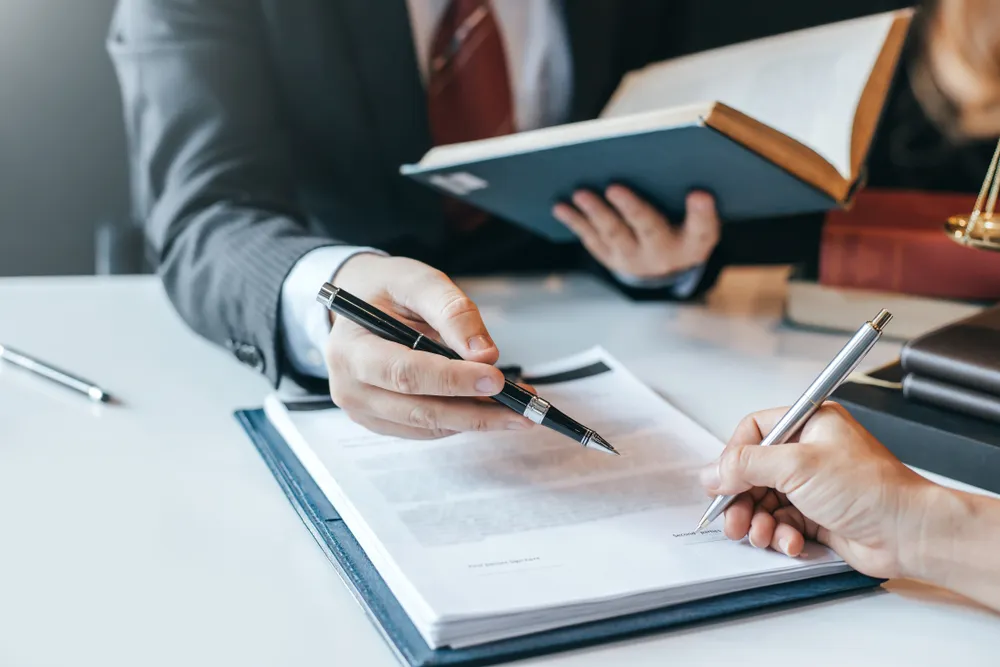 Settlement: If both parties agree on a settlement amount, the case can be resolved without going to court. You will receive the agreed-upon compensation, and in return, will need to sign a release of liability, closing the case.
Settlement: If both parties agree on a settlement amount, the case can be resolved without going to court. You will receive the agreed-upon compensation, and in return, will need to sign a release of liability, closing the case.Throughout this process, an Atlanta personal injury attorney will work toward acquiring a fair resolution that compensates you for your physical and emotional damages. Keep in mind that each case is unique, and the timeline and outcome can vary based on individual circumstances and legal challenges.
Compensation in a personal injury claim is determined based on a variety of factors that aim to fairly and accurately assess the damages suffered by the injured party. The goal of compensation is to help you recover financially and emotionally from the impact of the injury. Here are the key factors that influence how compensation is determined in a personal injury case:
Georgia follows a modified comparative negligence rule. If you are found to be less than 50% at fault for an accident, you can still recover compensation, but your award will be reduced by your percentage of fault. For example, if you are found 20% responsible for a crash, $100,000 of damages would be reduced to $80,000. If you are more than 50% at fault, you cannot recover any damages.
An experienced personal injury attorney will explore all avenues to maximize compensation. They will take all necessary steps to ensure you recover compensation for the following:
It’s important to note that the availability and limits of these damages can vary based on your jurisdiction and the specific circumstances of your case. Consulting with a personal injury attorney is important to understand your rights and options for seeking compensation.
An attorney can guide you through the process, determine the appropriate types of damages to pursue and advocate on your behalf to ensure you receive fair compensation for your losses.
Two clients who were special needs students were being hit and abused by the paraprofessionals in a public school system. T. Madden & Associates took on the case and secured 1.25 MILLION Dollars against 1 of 4 defendants involved in the wrongful actions. The case remains open as T. Madden & Associates continues fighting for the policy limits of the remaining defendants; over $10 MILLION.
A father and son had a terrible valentine day when they found themselves the victim of a trucking collision. T. Madden & Associates initiated the case which led to the clients receiving over 3.25 MILLION Dollars.
A group of employees were experiencing a hostile work environment (HWE) and sexual harassment, prior to T. Madden & Associates was able to have the perpetrator fired and the ladies 1.25 MILLION Dollars.
Client was involved in a collision with a Yukon while driving his Honda motorcycle. The injured party was taken to the emergency room. The call was made to the firm from a hospital in Columbus, GA. We were able to serve the client as if he was next door. T. Madden & Associates was able to recover the policy limits of $1.25 MILLION for the client.
T. Madden & Associates, P.C. was able to bring justice and $1,050,000 for a couple when nobody could tell them how their son wound up at the bottom of a swimming pool. Many think if nobody saw how the drowning happened, then there can’t be a monetary recovery. T. Madden & Associates would not accept that as a proper response. A wrong occurred and this law firm made the defendant’s pay.
Three persons were involved in a collision with a Marta bus in a case of distracted driving. The public trial resulted in a $960K recovery for the 3 victims.
While experiencing a personal injury can be overwhelming, it’s important you are aware of how to move forward to ensure you protect your rights and build a strong case. These steps include:
Maximizing compensation in a personal injury lawsuit involves careful planning, strategic execution, and working closely with an experienced attorney.
Here are steps you can take to increase your chances of obtaining the highest possible compensation in your lawsuit:

Immediately after being injured, you should prioritize your health and safety. Seek medical attention as soon as you can, even if you don’t think your injuries seem that bad. Some injuries, like concussions or internal damage, do not present symptoms right away. Without proper treatment, these conditions can worsen over time.
Receiving medical care is also important for creating a comprehensive record of your injuries. This is essential to link them to your accident. Be sure to follow your doctor’s orders by taking any medication as prescribed and complying with all follow-up appointment requests.
If there is any evidence to show that you are not following a doctor’s orders, it could be used against you to suggest your injuries are not as bad as you claim them to be.
If you are physically capable of doing so, document the accident scene as thoroughly as you can. Use the camera on your phone to take pictures of where it happened and what injuries it caused. If either vehicle is damaged, capture the extent of their condition as well. It’s also helpful to capture any evidence of a hazard, like a faulty traffic sign or the absence of a wet floor sign in a slip and fall accident. All of these details can be helpful when reconstructing the incident later.
Be sure to collect the names and contact information of everyone that was at the scene. This also includes any bystanders who may have witnessed what unfolded. If the accident involved a vehicle, jot down the driver’s license information, license plate number, and insurance details.
Collecting contact information for witnesses can be crucial, as witnesses provide an objective account of what they saw. This can strengthen your case if liability is disputed and your own account of what happened is questioned. Your attorney can contact these individuals at a later date to provide statements or testimony to support your claims.
Depending on how serious the accident is, you may need to file an official injury report. For car accidents in Georgia, you are required to report any accident that resulted in an injury, death, or significant property damage. If the incident occurred at a business or public location, be sure to ask for a complete incident report that includes the property manager or supervisor’s contact details. These reports can create an official record with the foundational details you will need.
Many cases have been jeopardized by lost or destroyed evidence that was needed to prove a claimant’s case. This is why it’s important to preserve evidence as soon as you can. For instance, all physical evidence that you collect, like torn clothing or damaged personal items, needs to be protected so the opposing counsel has no room to suggest the evidence’s integrity was compromised.
Hire a skilled personal injury attorney who has experience in handling cases similar to yours. A knowledgeable attorney can guide you through the legal process and help build a strong case.
Your attorney will engage in strong negotiations with the opposing party or their insurance company. Skilled negotiation can result in a higher settlement offer.
 While most cases settle before trial, being prepared to go to trial demonstrates your commitment to obtaining fair compensation. Dedicated trial preparation can also pressure the opposing party to settle for a higher amount.
While most cases settle before trial, being prepared to go to trial demonstrates your commitment to obtaining fair compensation. Dedicated trial preparation can also pressure the opposing party to settle for a higher amount.
Work with your attorney to construct a compelling story that demonstrates the impact of the injury on your life. A persuasive narrative can influence negotiations and, if necessary, a jury.
Depending on the circumstances, you might have additional sources of compensation beyond the at-fault party’s insurance, such as underinsured/uninsured motorist coverage or multiple liable parties. This is where an attorney can provide invaluable legal insight.
Avoid accepting an initial settlement offer without consulting your attorney. Early offers might not reflect the full extent of your damages. Rely on your attorney’s legal acumen to determine the value of your claim. They can prevent you from settling for less than you deserve.
Remember that maximizing compensation requires a strategic approach, aggressive representation, and a focus on the details of your case. An experienced Atlanta personal injury attorney can guide you through these steps and help you pursue the compensation you need.
Insurance companies are known to minimize payouts. Some common tactics to look out for include:
Anyone who needs to hire an attorney after an injury is likely worried about how much their legal costs will be. Fortunately, many Atlanta injury lawyers work on a contingency fee basis. This means that a client will only have to pay for their attorney if that attorney wins their case for them.
See the following for more details about how legal fees could work in your case:
A contingency fee means that you should not need to pay any upfront costs or hourly rates for your attorney. Rather, they collect a percentage of your settlement or court award as their payment. If you don’t win, you owe your lawyer nothing. The exact percentage of the settlement that an attorney may take for payment should be agreed upon before they start working on your case to ensure you are comfortable with the terms.
The contingency model provides many benefits, especially by making sure that legal representation is accessible to everyone regardless of their financial circumstances. Other key benefits include:
While the contingency fee covers your attorney’s payment, there may still be added expenses associated with your case. While some attorneys may cover these fees for your case and deduct them later through your final settlement award, others may approach this differently. This is why it’s important to discuss fees with your personal injury lawyer during an initial consultation.
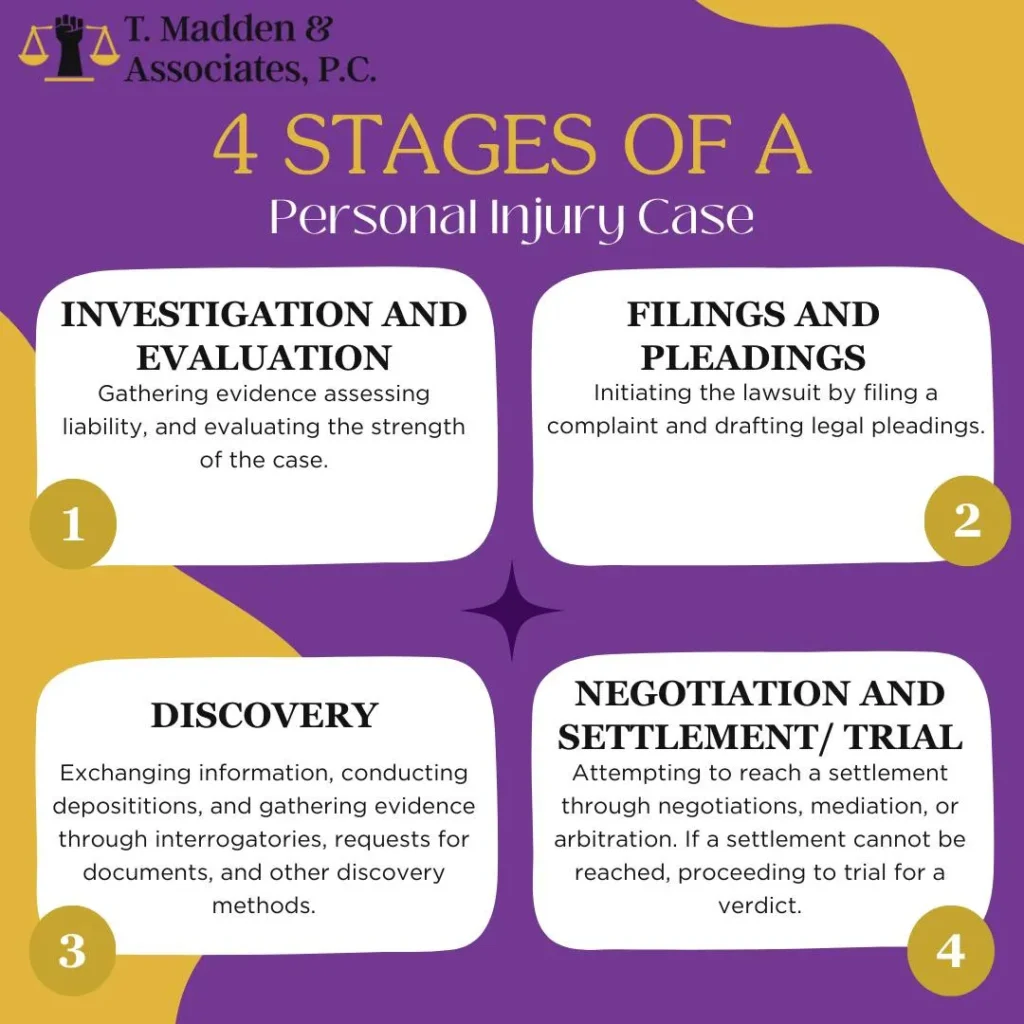 Navigating a personal injury claim alone can be overwhelming. A local Atlanta injury lawyer provides critical support by:
Navigating a personal injury claim alone can be overwhelming. A local Atlanta injury lawyer provides critical support by:
Comprehensive Knowledge of Georgia Laws
Georgia follows a comparative negligence rule, reducing your compensation by your fault percentage. An attorney will collect evidence and craft strategies to minimize your fault and protect your claim.
Establishing Liability
Your attorney will demonstrate how another party’s negligence directly caused your accident and resulting damages. Through thorough investigation and evidence gathering, they build a strong case to prove liability.
Local Resources
An experienced Atlanta injury lawyer understands the city’s court systems, judges, and opposing counsel. They also have connections with accident reconstruction specialists, expert witnesses, and medical professionals to strengthen your claim.
Skilled Negotiation
Insurance companies aim to minimize payouts. Your attorney counters their tactics with evidence and negotiation, ensuring you’re not pressured into accepting less than you deserve.
Accurate Damage Calculation
Compensation isn’t limited to immediate expenses. Your lawyer calculates damages, including future medical costs, lost wages, and diminished quality of life, ensuring your claim reflects the accident’s full impact.
Negotiating Liens and Subrogation
If health insurers or others claim a portion of your settlement, your attorney negotiates to minimize these liens. This ensures you retain as much of your compensation as possible.
Trial Preparation
If a fair settlement isn’t reached, your attorney prepares your case for trial. This includes organizing evidence, identifying witnesses, and crafting a persuasive strategy to present in court.
Free Initial Consultation — During your consultation, we’ll review the details of your case, answer your questions, and explain your legal options.
Thorough Investigation — Our team will gather evidence, interview witnesses, and work with experts to build a strong case on your behalf.
Aggressive Representation — Whether through negotiation or litigation, we will fight to secure the maximum compensation for your medical expenses, lost wages, pain and suffering, and other damages.
Support Every Step of the Way — We’re here to guide you through the legal process, providing updates and support at every stage.
Time is critical in personal injury cases. At T. Madden & Associates, we don’t just represent you. We fight relentlessly to secure the justice and compensation you deserve. With our experience and dedication, we are your strongest legal ally.
Let our Atlanta personal injury attorneys fight for your rights and future during this challenging time. To request your free, no-obligation consultation, call us at 706-807-1998 or complete this online form. Your path to justice starts now.
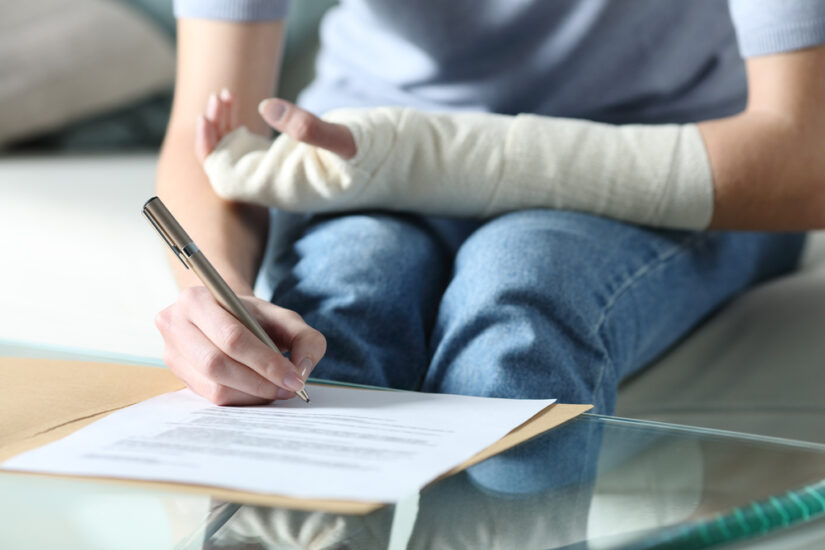 What Should I Do If the Insurance Company Offers Me a Settlement?
What Should I Do If the Insurance Company Offers Me a Settlement?If an insurance company has offered you a settlement for your injury case, it’s important to discuss it with an attorney before accepting it. Insurance adjusters may try to minimize their payouts. The first offer you receive might not cover the extent of your medical bills, lost wages, and other areas of compensation that you are eligible to collect. An Atlanta injury lawyer can calculate the true value of your claim and negotiate to obtain it for you.
Yes, you are still able to file a personal injury claim even if you share some fault for causing the accident. Georgia operates under a comparative negligence rule, which means that you are able to recover compensation if you are less than 50% at fault for what happened. For example, if you are found to be 20% at fault, and the total damages amount to $100,000, you would be awarded $80,000.
The average length of a personal injury case is dictated by factors like the length of the investigation, how severe the injuries are, and whether the case is settled through negotiation or trial. When liability is clear and evidence is difficult to refute, an injury case could settle within a few months. However, cases with unresolved disputes and significant damages to calculate could take years before a final verdict is made.
The emotional toll in the aftermath of an accident is considered non-economic damage. This is a psychological impact that an injury has caused, like anxiety, depression, or post-traumatic stress disorder (PTSD). Emotional distress can significantly affect the quality of your life and outlast physical injuries once they heal. To prove emotional distress, therapy records or testimony from a mental health professional can help add credibility to the claim.